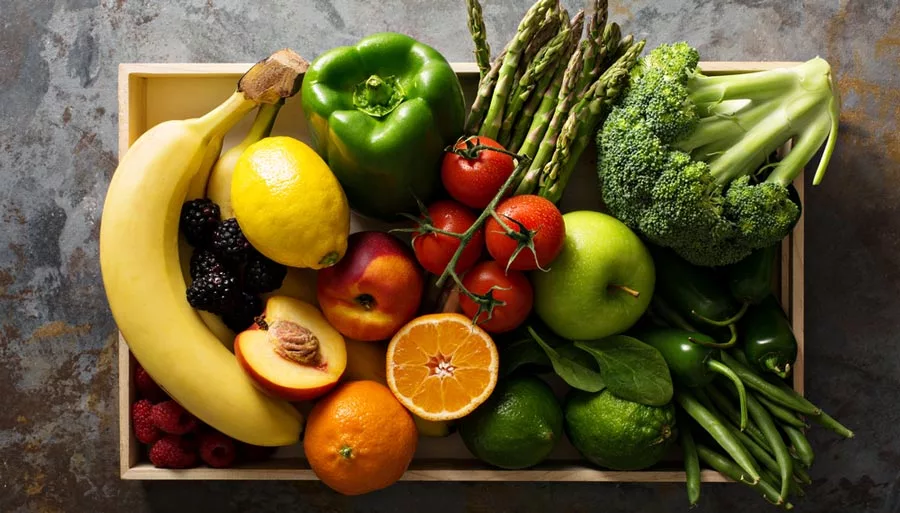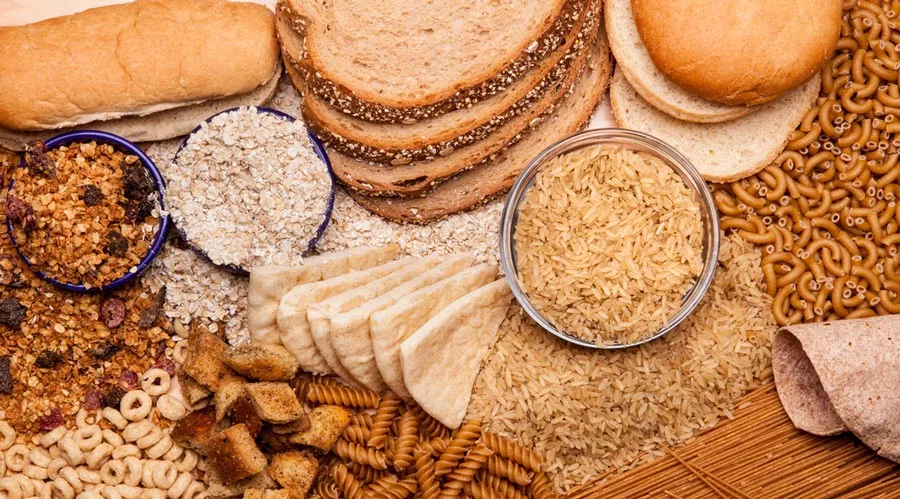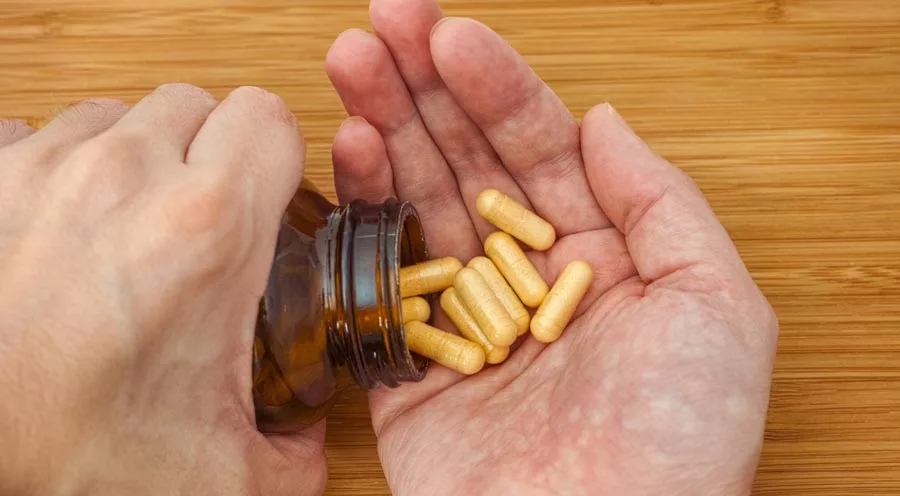Healthy Nutritional Approaches to Take When Getting Sober
When you are struggling with alcohol abuse or addiction, it may take a full-body approach to help you get sober. Many people think that alcohol cravings are purely mental or emotional, but they can be just as physical.
As a result, your alcohol detox can be helped by eating a healthy diet that counteracts the side effects of alcohol dependence. Which leads to the obvious question: what is the best diet after quitting alcohol?
You have come to the right place for answers, with a guide to this very topic from our experts at Catalina!
Today’s blog from the team at Catalina Behavioral Health will help you walk through the early days of leaving alcohol consumption behind. As a client at our facilities, we will work with you to help you cultivate a diet of nutrient-rich foods that minimize your alcohol withdrawal symptoms.
If you are ready to face down a drinking problem, your diet is a great place to start. Keep reading to get resources to help curb alcohol withdrawal and cravings, and remember we are always here if additional support is needed!
Get Alcohol Detox and Support Options at Catalina Now!
Best Nutrient-Rich Foods for Alcohol Cravings
What should you be eating if you no longer want to drink alcohol to cope with your physical and emotional symptoms?
Here is a quick guide to a balanced diet and which foods to eat if you want to minimize excessive alcohol consumption.
Drink Plenty of Water: The Best Diet After Quitting Alcohol
Water is an underrated part of a balanced diet. Especially in the early days of your sobriety, you will likely experience symptoms that can easily dehydrate you. Nausea and vomiting are common, taking away some of the precious water in your system. You may also experience headaches during your alcohol withdrawal.
These symptoms can be decreased by drinking plenty of water. Plus, increased water intake can more quickly flush the toxins of the alcohol out of your system. This can get you to a point of less severe detox symptoms more quickly.
Of course, water also has an important role in your mood. One study found that there were significant increases in mental health and better sleep-wake cycles among high-intake water drinkers. If they were to decrease water intake, the opposite is true.
Fruits and Vegetables for Blood Sugar

Most people already know that fruits and vegetables are a core component of a balanced diet. They are packed full of nutrients that can assist in the body’s ability to heal itself. Take a turn away from some of the processed foods that make up the standard American diet and turn to these healthier foods instead.
Why are fruits and vegetables so good for you in the aftermath of an alcohol use disorder?
Not only do they contain tons of vitamins and minerals, but they also provide a great deal of fiber. One of the main things they do is provide vitamin A which has been proven to be deficient in those who are going through alcohol withdrawal.
However, their real draw lies in how they impact blood sugar. Alcohol abuse or addiction often leads people to crave sugary foods. Fruits are a healthy way to indulge your sweet tooth without long-term side effects from processed foods. Eating too much sugar in the form of nutritionally empty calories can lead to a secondary addiction (as well as lead to a host of related side effects like fatigue and even diabetes).
Healthy Fats for Mood and Inflammation
Eating healthy foods following your decision to stop drinking alcohol can be problematic for many people. You can supplement the body’s ability to heal by eating more healthy fats. Consider adding more fatty fish to your diet for a dose of omega-3 fatty acids which are the best kind of healthy fats for successful alcohol detoxification.
Omega-3 fatty acids are considered to be the best healthy fats because they improve many of the symptoms associated with detox from alcohol. For example, they lower inflammation in the body and can even improve your overall mood swings.
Some Healthy Possibilities to Consider:
If you need to incorporate more healthy fats into your diet, you might consider adding some of these foods to eat:
- Walnuts
- Salmon
- Flaxseed
- Tuna
- Sardines
- Oysters
Whole Grains for Energy

Do you need help with flagging energy throughout your day? It is not uncommon to see people in an alcohol detox who feel like they have no energy to get through the day. While some of these symptoms are indeed emotional, you may also be struggling physically if you do not have enough whole grains or complex carbs in your diet.
Grains like whole wheat bread and brown rice are a great way to increase your energy in a natural way. Plus, these foods are often high in vitamin B content, which is a vitamin lacking in many people with alcohol use disorder.
However, the main reason to eat more whole grains is that they provide an excellent source of fiber. If you have not noticed this recurring theme yet, fiber is a crucial element of a post-detox diet. Fiber helps to support both the liver and kidneys which speeds up your detox and helps your overall health.
Proven Programs for Alcohol Treatment – Call Us Now!
The Best Diet After Quitting Alcohol: Protein for Stronger Muscles
One of the food cravings you may have when you start to detox from alcohol is protein. You can consume protein in the form of many meats, fatty fish, beans, eggs, nuts, and seeds. While many people do eat protein to help them with weight gain, there is an even more important issue at play here: namely, your muscle content.
People who enter into alcohol detox often lack the essential nutrients needed to support healthy muscle growth. Protein provides not only the building block to growth, but these foods are often rich in other nutrients that can minimize detox symptoms as well.
When Just a Little Nutrition Can Help a Lot
When you first begin alcohol detoxification, you might find that you do not really want to eat much. Nausea, vomiting, and diarrhea are all common side effects of ridding your system of alcohol. A little bit of protein can help you to feel full without incurring any additional negative side effects.
If you find that you cannot eat enough solid foods to consume protein, consider bone broth and a liquid diet.
Incorporate Nutritional Supplements Following Alcohol Detox

Your blood sugar is not the only thing you should monitor after you quit drinking alcohol. Beyond just eating nutritious foods as part of a healthy diet, you also need to make sure that your recovery from alcohol addiction or abuse is smooth by putting nutritional supplements into your diet.
Oftentimes, people who have struggled with alcohol misuse are lacking in some common vitamins and minerals. As you enter into alcohol recovery in earnest, you may want to take more vitamins like:
- Vitamin B: Vitamin B helps support your energy levels and overall brain function. There are lots of different varieties of B vitamins, so you may want to take a B-complex vitamin that covers many varieties including B1 and B9 (thiamine and folate, respectively).
- Magnesium: Magnesium is a great way to naturally help solve some of your sleep issues in your alcohol recovery journey. Not only does it improve your ability to sleep soundly, but it can also minimize cravings.
- Zinc: Another little-known vitamin and mineral to help with withdrawal symptoms is zinc. A diet low in zinc has been linked to more depression and anxiety symptoms in research subjects. Because depression and mood changes are common in alcohol recovery, you may want to minimize these symptoms by taking a zinc supplement.
Of course, you could also benefit from a general multivitamin that covers all of these categories and many others. Taking some of these supplements can boost your immune system which gives you more space to focus on recovery rather than health.
You may want to add a little cayenne pepper to your diet. This ingredient lessens alcohol cravings while promoting a decrease in common withdrawal symptoms. Eating foods high in cayenne pepper minimizes nausea and headaches, two of the most problematic symptoms for recovering alcoholics.
What to Eat in Early Alcohol Recovery

Unfortunately, your withdrawal symptoms in the early days of your sobriety might keep you from wanting to eat a heavy meal. In turn, this can lead to health problems and a decrease in mood, a lack of energy, and increased cravings to return to alcohol use. You need a steady energy source to get you by until your body recovers.
When eating feels unappealing to you, you still need to eat foods rich in the vitamins, minerals, and basic building blocks of nutrition listed above. To do this, you may want to consume a liquid diet that is easier on the stomach when you feel nauseous or are experiencing digestive upset.
The Power of Broths and Other Nutrient-Rich Liquids
Bone broth can be a great way to get protein and water in your system in these early days. Soups are easier on the stomach lining and may help you get some of the vitamins and minerals necessary to promote recovery. Fruit and vegetable juices can also be a great way to get some vitamins in your system without having to eat anything heavy.
Keep in mind that you may want to avoid caffeine in the early days of your sobriety. Caffeine can lead to more stimulation of your system and contribute to anxiety-like symptoms which are already at a high during a detox.
Up to 100% of Costs Covered by Insurance – Call Now!
Get Help for Quitting Alcohol at Catalina Today
If you are ready to embrace professional assistance for alcohol use, you need the help of a treatment center that understands how to treat the whole person. Nutrition is just one aspect of the healing journey you will need to take to eliminate alcohol from your daily life.
Those recovering from issues with alcohol should prioritize foods high in these nutritional building blocks, and we hope this guide has proved helpful. Should you need further support, we are ready and waiting to assist.
When you are ready to start the recovery process, let Catalina Behavioral Health guide you through the early days. We have the experience and team of medical professionals who will bring you through the first days of detoxification and into a program designed to promote lasting recovery. Reach out to our welcoming staff to learn more about our programs today!





